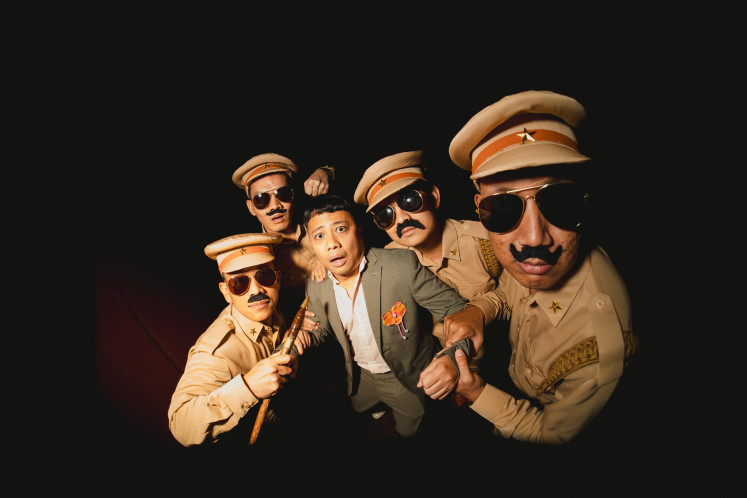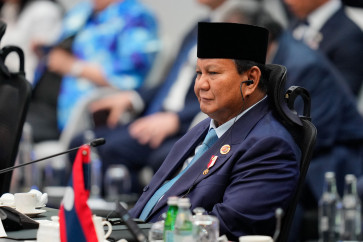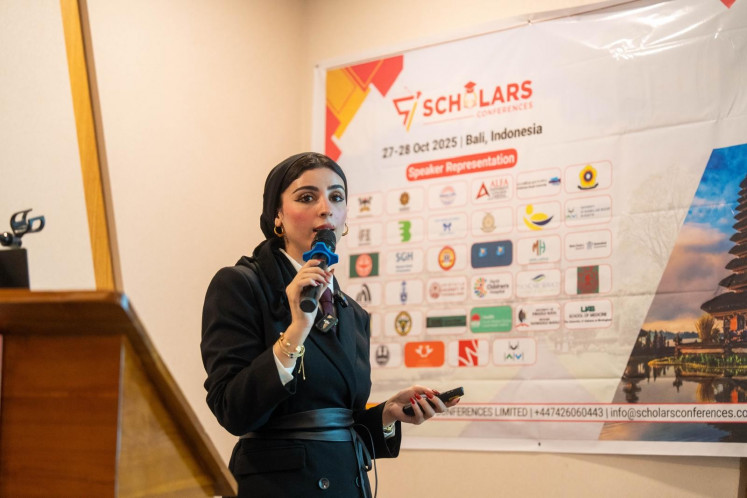Popular Reads
Top Results
Can't find what you're looking for?
View all search resultsPopular Reads
Top Results
Can't find what you're looking for?
View all search resultsAlbum Review: 'Melodrama' by Lorde
Her second record Melodrama boasts more names in the credits, but her sound, her evolution, her lyricism seem hers alone.
Change text size
Gift Premium Articles
to Anyone
W
hat is scarcely known from the upper echelons defining pop music right now is their autonomy. Maybe some A&R folks told them that or well-meaning mentors or themselves.
But when “Royals,” a song from the New Zealand singer Lorde, slid its way into radio airwaves and factory outlets, this claim seemed weakened, or moot.
This was a person — not yet 17 — navigating her way through the land populated by the Svengalis and the Dr. Lukes of modern pop. All she needed was contained, crunchy beats.
An album full of those — Pure Heroine, released in 2013 and boasting only two names: Ella Yelich-O’Connor (Lorde’s real name) and Joel Little — etched her single-syllable name into industry heads.
“Royals” was no one-hit wonder, of course — her other single “Team,” also rose up the charts.
With Lorde, this kind of autonomy was never a bargain.
Her second record Melodrama boasts more names in the credits, but her sound, her evolution, her lyricism seem hers alone.
It still remains to be seen whether it’s a formidable claim, but now, with the kind of attention Lorde is able to command, it seems about right.
Let’s start with the sound. Melodrama is such a cleverly sequenced, propulsive record that it wiped away my doubts that what she needed to do was repeat herself.
Aided by the musician and producer Jack Antonoff, Lorde combines her self-awareness and her signature sound with Antonoff’s, which means that this record glimmers with exuberance: 80s-inspired, percussion-heavy, occasionally odd exuberance.
It shakes, but never trembles.
“Green Light,” the first song and the first single from the album announces it: a lilting, house-inspired piano sound permeates through song, while the beats get progressively compelling.
Variety is also Lorde’s strength. There’s a piano ballad (“Liability”) and there’s a ghastly, haunting dirge (“Writer in the Dark”). How Lorde sequences these songs mirrors the way Lorde realizes the sounds in her head.
When you listen to “Supercut” near the end of the record, the ghosts of “Green Light” come back again; the piano returns.
Melodrama, then, follows the trajectory of album artists before her, like Frank Ocean or Beyonce.
The consistency permeates the lyrics, too. Take “Sober II (Melodrama),” for instance.
“We told you this was melodrama,” she sings.
Then the song after that is the Kate Bush inspired “Writer in the Dark,” where she sings, “I’ll love you till you call the cops on me.”
There’s black humor, too, in the lyric “might get your friend to drive, but he can hardly see /we’ll end up painted on the road.”
At this point, you realize that Antonoff didn’t compromise Lorde’s autonomy; he became a part of it.
Also, take the way Lorde ends things.
“The Louvre” ends with a guitar sound, previously hinted at in the song’s second verse, while the beats merely creeps along.
“Hard Feelings/Loveless” are two disjointed tracks braided together — the first part has Melodrama’s most challenging moments: industrial, sharp-as-shards beats, only to be countered by the bubblegum pop of the second part.
The album ends with “Perfect Places,” showcasing a minor note of the piano and Lorde’s croak.
My favorite songs here are “The Louvre” and “Sober II (Melodrama).” The latter greets the listener with the sound of lush, unnerving strings.
Autonomy isn’t always a strength and its absence isn’t always a shortcoming (like Beyonce’s Lemonade, for instance).
But it suits Lorde just fine.
It is the same kind of autonomy that probably made the late David Bowie once call Lorde “the future of music.”
She might be. It is a big claim. Melodrama can’t convince you of its accuracy.











